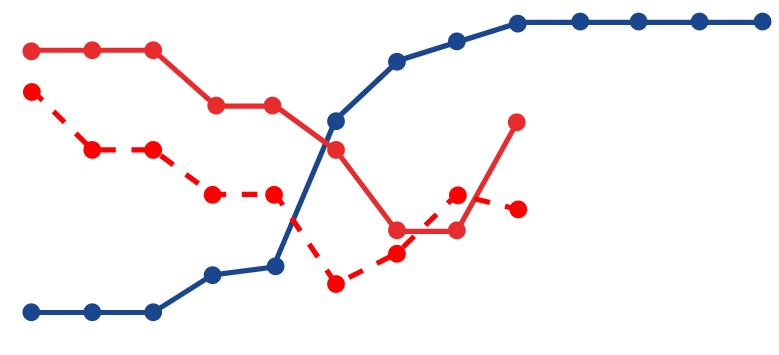
In red oceans, companies compete for a
greater share of shrinking demand. In the face of today's global trends
and technological developments, this competition is becoming even
fiercer. The following developments show why shifting from
red to blue
oceans is more important now than ever.
THE WORLD IS CHANGING AND IT'S AFFECTING EVERYTHING WE DO
Dramatic shifts in technology and the global marketplace are having a
profound impact on organizations. Whether they operate in the private,
public or non-profit sectors, organizations of every stripe in every
continent need to rethink the way they do business. Organizations can no
longer afford to build a strategy on existing environmental and industry
conditions, but instead shape them in their favour.
SUPPLY IS OVERTAKING DEMAND IN MORE AND MORE INDUSTRIES
As technology continues to improve industrial productivity, suppliers
are producing a greater range of products and services than ever before.
The result is that supply is overtaking demand in more and more
industries, leading to greater commoditization of products and services.
As brands become more similar, people increasingly base purchase choices
on price, leading to shrinking profit margins. And so it becomes harder
for brands to differentiate themselves, leading many companies to
compete principally on cost.
THE NEED FOR CREATIVE NEW SOLUTIONS
Healthcare, education, financial services, energy, the environment, and
the government - these industries and sectors matter to every one of us.
Yet, as demand continues to grow, budgets diminish and pressures
increase. Now, more than ever before, the players in these and other
industries and sectors need to find creative solutions - a shift in
thinking that achieves innovation at lower costs.
THE RISE OF NEW GLOBAL PLAYERS
Companies from China, Latin America, and other emerging markets are
changing the economic landscape. They not only represent oceans of new
demand. They are also competitors with global ambitions as big as any
American, European or Japanese company.
In addition, players from all corners of the world can participate in
global markets through the internet at low cost.
To stand apart in these overcrowded markets, you need to be creative
through value innovation.
A GLOBAL SHIFT IN FUTURE DEMAND AND GROWTH
The big emerging economies - China, Brazil, Turkey and others are not
like the developed economies the world has counted on in the past to
consume its goods and services. The new, developing markets are the
product of low, but rising, per capita income for very large
populations. To respond to the huge potential demand in these countries,
companies need to offer affordable goods and services. These same
populations also have increasing access to the internet, mobile phones,
and TVs with global channels that raise their sophistication, demands,
and desires. To capture these increasingly savvy customers' imaginations
and wallets, companies need to offer both differentiation and low cost.
THE INFLUENCE OF THE INTERNET AND SOCIAL NETWORKS
The surge in social network sites, user-driven content, and internet
ratings have become ubiquitous around the globe, shifting the power and
credibility of voice from organizations to individuals. Today's buyers
broadcast their opinions, and share their experiences on Twitter,
Facebook, YouTube and elsewhere online.
Standing out in this new environment means doing things differently. You
can't afford to be another me-too offering when your competitors have
the same access to huge audiences online.
Copyright (C) All Rights Reserved - Damson Group.